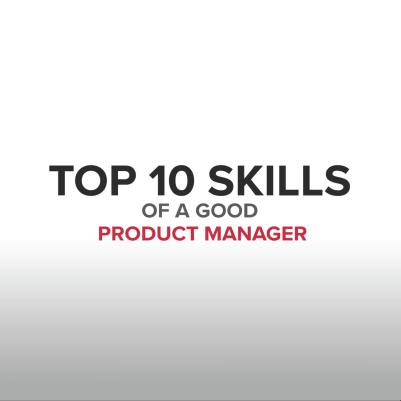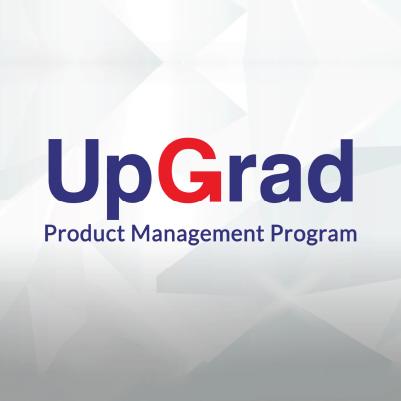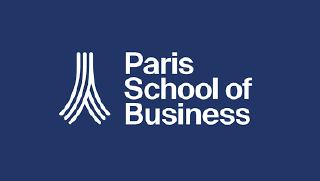Working professionals
Domains
Doctorate
Artificial Intelligence
Machine Learning
Gen AI & Agentic AI
MBA
Marketing
Management
Education
Project Management
Data Science
Doctorate
For All Domains
IIITB & IIM, Udaipur
Chief Technology Officer & AI Leadership ProgrammeSwiss School of Business and Management
Global Doctor of Business Administration from SSBMEdgewood University
Doctorate in Business Administration by Edgewood UniversityGolden Gate University
Doctor of Business Administration From Golden Gate UniversityRushford Business School
Doctor of Business Administration from Rushford Business School, SwitzerlandGolden Gate University
Master + Doctor of Business Administration (MBA+DBA)Leadership / AI
Golden Gate University
DBA in Emerging Technologies with Concentration in Generative AIGolden Gate University
DBA in Digital Leadership from Golden Gate University, San FranciscoArtificial Intelligence
Degree / Exec. PG
IIIT Bangalore
Executive Diploma in Machine Learning and AIOPJ Global University
Master’s Degree in Artificial Intelligence and Data ScienceLiverpool John Moores University
Master of Science in Machine Learning & AIGolden Gate University
DBA in Emerging Technologies with Concentration in Generative AIExecutive Certificate
IIITB & IIM, Udaipur
Chief Technology Officer & AI Leadership ProgrammeIIIT Bangalore
Executive Programme in Generative AI for LeadersupGrad | Microsoft
Gen AI Foundations Certificate Program from MicrosoftupGrad | Microsoft
Gen AI Mastery Certificate for Data AnalysisupGrad | Microsoft
Gen AI Mastery Certificate for Software DevelopmentupGrad | Microsoft
Gen AI Mastery Certificate for Managerial ExcellenceOffline Bootcamps
upGrad
Data Science and AI-MLMachine Learning
Machine Learning
Gen AI & Agentic AI
Gen AI & Agentic AI
IIIT Bangalore
Executive Programme in Generative AI for LeadersMasters

Paris School of Business
Master of Science in Business Management and TechnologyO.P.Jindal Global University
MBA (with Career Acceleration Program by upGrad)Edgewood University
MBA from Edgewood UniversityO.P.Jindal Global University
MBA from O.P.Jindal Global UniversityGolden Gate University
Master + Doctor of Business Administration (MBA+DBA)Executive Certificate
IMT, Ghaziabad
Advanced General Management ProgramMarketing
Executive Certificate
upGrad | Microsoft
Gen AI Foundations Certificate Program from MicrosoftupGrad | Microsoft
Gen AI Mastery Certificate for Content CreationOffline Bootcamps
upGrad
Digital MarketingManagement
Degree
O.P Jindal Global University
MSc in International Accounting & Finance (ACCA integrated)
Paris School of Business
Master of Science in Business Management and TechnologyGolden Gate University
Master of Arts in Industrial-Organizational PsychologyExecutive Certificate
IIM Kozhikode
Human Resource Analytics Course from IIM-KupGrad | Microsoft
Gen AI Foundations Certificate Program from MicrosoftEducation
Education
Northeastern University
Master of Education (M.Ed.) from Northeastern UniversityEdgewood University
Doctor of Education (Ed.D.)Edgewood University
Master of Education (M.Ed.) from Edgewood UniversityProject Management
Certification
Knowledgehut
Leadership And Communications In ProjectsKnowledgehut
Microsoft Project 2007/2010Knowledgehut
Financial Management For Project ManagersKnowledgehut
Fundamentals of Earned Value Management (EVM)Knowledgehut
Fundamentals of Portfolio ManagementKnowledgehut
Fundamentals of Program Management-35c169da468a4cc481c6a8505a74826d.webp&w=128&q=75)
Knowledgehut
CAPM® CertificationsKnowledgehut
Microsoft® Project 2016Certifications & Trainings
-7f4b4f34e09d42bfa73b58f4a230cffa.webp&w=128&q=75)
Knowledgehut
PMP® Certification-7f4b4f34e09d42bfa73b58f4a230cffa.webp&w=128&q=75)
Knowledgehut
PMI-RMP® Certification-7f4b4f34e09d42bfa73b58f4a230cffa.webp&w=128&q=75)
Knowledgehut
PMP Renewal Learning PathKnowledgehut
Oracle Primavera P6 V18.8Knowledgehut
Microsoft® Project 2013-7f4b4f34e09d42bfa73b58f4a230cffa.webp&w=128&q=75)
Knowledgehut
PfMP® Certification CourseKnowledgehut
Project Planning and MonitoringPrince2 Certifications
Knowledgehut
PRINCE2® FoundationKnowledgehut
PRINCE2® PractitionerKnowledgehut
PRINCE2 Agile Foundation and PractitionerKnowledgehut
PRINCE2 Agile® Foundation CertificationKnowledgehut
PRINCE2 Agile® Practitioner CertificationManagement Certifications
-7f4b4f34e09d42bfa73b58f4a230cffa.webp&w=128&q=75)
Knowledgehut
Project Management Masters Certification ProgramKnowledgehut
Change ManagementKnowledgehut
Project Management TechniquesKnowledgehut
Product Management Certification ProgramKnowledgehut
Project Risk ManagementData Science
Degree / Exec. PG
O.P Jindal Global University
Master’s Degree in Artificial Intelligence and Data ScienceIIIT Bangalore
Executive Diploma in Data Science & AILiverpool John Moores University
Master of Science in Data ScienceExecutive Certificate
upGrad | Microsoft
Gen AI Foundations Certificate Program from MicrosoftupGrad | Microsoft
Gen AI Mastery Certificate for Data AnalysisupGrad | Microsoft
Gen AI Mastery Certificate for Software DevelopmentupGrad | Microsoft
Gen AI Mastery Certificate for Managerial ExcellenceupGrad | Microsoft
Gen AI Mastery Certificate for Content CreationOffline Bootcamps
upGrad
Data Science and AI-MLupGrad
Data AnalyticsFresh graduates
Domains
Data Science
Management
Marketing
Data Science
Bootcamp
Offline Bootcamps
upGrad
Data Science and AI-MLupGrad
Data AnalyticsManagement
Marketing
Bootcamp
upGrad Campus
Advanced Certificate in Performance MarketingOffline Bootcamps
upGrad
Digital Marketing- Study abroad
- Offline centres
More
RESOURCES
BlogsCutting-edge insights on education
WebinarsLive sessions with industry experts
TutorialsMaster skills with expert guidance
Learning GuideResources for learning and growth
COMPANY
Careers at upGradYour path to educational impact
Hire from upGradTop talent, ready to excel
upGrad for BusinessSkill. Shape. Scale.
Talent Hiring SolutionsReach. Rekrut. Redefine.
Experience centerImmersive learning hubs
About usOur vision for education
OTHERS
Refer and earnShare knowledge, get rewarded
Consumer Behaviour Courses Online
The management field has its own charisma, what with the glamorous corporate exposure, high salary packages, exponential performance based career growth and much more.
20(1)-70997669bd1a4ba2b565901e0eae2fa5%20(1)-de9c82be352d44bcb6a48fecf60b4465.jpeg&w=3840&q=75)
Consumer Behaviour Course Overview
Consumer behaviour and belief are rapidly changing with time, and the global business market constantly keeps track of what influences said changes. Companies have dedicated departments to understand and comprehend customer behaviour to delve deep into consumer insights. As per behavioural science, identifying consumers' new habits, beliefs, and “peak moments” is key to influencing their behavioural change.
Therefore, consumer behaviour is one of the most integral elements in marketing strategies because it is an essential step to comprehending the consumers’ desires and expectations companies need to influence. In order to carry this out, companies are required to understand how the consumer will react to and draw influence from marketing strategies. To have a further and deeper understanding of the preferences of a company’s target audience, companies need to address the following questions:-
- How do consumers discern the information?
- How to capture the attention of consumers?
- What do consumers need?
- What are the influential factors that drive them to make a purchase?
All business owners and entrepreneurs aim to meet the demands of their target audience and have the upper hand in the competitive market. Thoroughly studying customer behaviour boosts their sales and profits because it helps them gain valuable insights. In turn, this leads them to successfully adhere to the customer needs and eventually lead their satisfaction into successful sales.
Consumer behaviour studies how each customer, group, or organisation chooses, purchases, utilises and disposes of services and ideas to fulfil their needs and desires. It is more commonly known as the customers' actions in a marketplace and their motives behind those actions. By understanding the causes behind consumers making a purchase decision for particular goods or services, companies can distinguish which products have a market demand and which remain obsolete.
Studying Consumer behaviour in retail management considers the role of every single individual that influences a customer's purchase decision. From the information provider to the payer and disposer, each one of them plays a very influential role in this decision-making process.
You must first understand how customers think and feel about various product alternatives in the market and the reason that influences their bias towards the particular option. These influences or motivations driving consumer behaviour are variegated. The most foolproof way to study and understand them is to use various research modes that involve collecting both quantitative and qualitative data. The most commonly used modes of data collection are as follows:-
![]()
- Customer feedback: Going through your customers' comments helps highlight recurring problems and desires.
- Question and answer websites: Certain websites help you gain insight into various concerns and questions consumers might have about the brand, service, or product.
- Surveys: You can easily determine customer behaviour via online surveys via which you can ask specific questions to customers.
- Focus Groups or Online Panels: This is the process where you will be required to gather a few clients or customers together and ask questions based on your research needs.
Online surveys are considered to be the most effective method of researching the behavioural studies of consumers. There is ample survey software available that can be customised according to relevance and will enable you to send them to a target audience. Online survey software also allows you to conduct a thorough data analysis by filtering, comparing and identifying trends, as well as generating reports to influence future business decisions. Based on the generated results, demand can be predicted, after which sales, pricing models and marketing strategies are formulated.
Tracking the decision-making process is an important part of analysing consumer behaviour. It is dependent on the following factors:-
- Product design/model
- Product pricing
- Product promotion
- Product packaging
- Product positioning
- Place of distribution
Businesses, be it big or small, are all required to monitor the consumer buying decision to make predictions. In general, there are various consumer buying behaviours, and they can be categorised as the following:-
![]()
- Extended Decision-Making: This type of decision-making is commonly seen, especially when consumers purchase an expensive product. For instance, while purchasing a designer handbag, you are more likely to conduct in-depth product research before finally deciding to purchase it because there is a higher economic risk of buying it than an average bag.
- Limited Decision-Making: Limited decision-making is a type of decision-making where consumers are given a very limited variety or availability of a particular product.
- Habitual Buying Behaviour: This Buying Behaviour is integral and mainly carried out for incredibly cheap and readily available products. This is one of the most common and top consumer behaviours that companies take note of.
- Variety-Seeking Buying Behaviour: This kind of purchase behaviour is observed, especially when there are notable differences between a product available in the market and the existing brands. This behaviour mainly stems from curiosity.
Purchase Decision
The purchase decision is the thinking process leading a consumer to the final decision to spend money on a product. It stems from first identifying what they need, generating options, and selecting a particular brand or product. Some decisions can be minor such as buying a packet of biscuits, while others can be major purchases like buying a car. The purchase decision is an integral part of revenue generation in a company.
There are three major consumer purchase decisions with various levels of purchase involvement, starting from high to low. The types of purchase decisions are based on the purchase involvement continuum. The various kinds of purchase decisions are as follows:-
- Nominal: The first part of the purchase involvement continuum is nominal decision-making. It is the type of decision-making that involves the least involvement. It is the point when we realise we have a need, refer to our past memory, and repeat purchases. Nominal decision-making can be evaluative when the product does not meet the customer's expectations.
- Limited: Limited decision-making is the kind of purchase decision that requires a bit of time and effort to research and compare brands and models before making a final purchase.
- Extended: This purchase decision is mainly involved when a consumer wants to purchase something that is highly expensive and requires a significant amount of involvement to make the purchase worthwhile.
Post Purchase Decision
The post-purchase behaviour is more about how an individual feels, thinks, and acts post-purchase. This is also an important part of the decision-making process that involves contemplation from both the seller as well as the consumer. As a business owner, you must ensure that your customer has a positive experience after using your product. Post-purchase engagement is mainly involved with follow-up emails, newsletters and sometimes even discount coupons that attract customers to make additional purchases. This helps you attain life-long customers and earn customer loyalty.
When it comes to post-purchase behaviour, companies and brands need to extensively chalk out good strategies to make the customer experience pleasant so as to win them for life. Every action of a customer post-purchase is important and can be categorised as the following:-
- Positive behaviours
- Negative behaviours
The journey post-purchase journey can be minutely scrutinised, but it all boils down to giving the customer a good customer experience. You can ensure this by suggesting and encouraging actions you desire, such as repeat purchases, personalised reviews, and social engagement. You need to additionally predict the problems customers can potentially face in product returns, questions, and concerns related to shipping. By encouraging these behaviours, you can easily prevent ones that are undesirable. This will ensure that your brand achieves impressive results. There are numerous software solutions dedicated to helping you in this endeavour.
Businesses need to spend considerable time and resources on the products and services they sell. Therefore, catering to the customer’s needs is mandatory to generate revenue, go further as a market venture, and avoid losing. The first step is to discern what customers want and are more likely to purchase to ensure that products and the brand have a high acceptance rate.
This prompts companies to delve deep into the thorough research process of determining consumer behaviour. It is an integral step that marketers must follow to have comprehensive knowledge about the needs and wants of the consumer base. Companies need to study the numerous influential factors of consumer behaviour to optimise their products to reach their target customers and incur significant profits and customer loyalty. Some of the primary reasons why understanding consumer behaviour is of major importance are as follows:-
![]()
Improved marketing and communication: With the rapid changes in trends, living standards, and technology, the choices and preferences of consumers also keep changing. How these factors make an impact on the buying habits of customers should be well-researched in order to understand them because it helps companies design their marketing strategies in accordance. Therefore, studying consumer behaviour in retail management can significantly help companies meet their objectives faster.
More chance of customer retention: Retaining an existing customer is more beneficial to a company rather than gaining a new one. Selling newly launched products and services to existing customers has more chance of being purchased by them rather than selling them to new ones. Retaining customers create strong bonds between the customer and the brand, which adds to brand loyalty. Loyal customers also act as promoters of your brand by spreading positive reviews about their happy shopping experience via word of mouth. In order to ensure maximum customer retention, it is important to study consumer behaviour in retail management by entrepreneurs who seek to help their company grow.
Increase customer loyalty: Comprehending customer behaviour aids in thinking of ways you can boost the loyalty factor in customers for your brand. Customer loyalty is directly proportional to higher sales and a stronger brand. Reading trends in consumer behaviour in retail management and sales aids in this process. It can help companies read what customers want and offer discounts, suggesting their best products and services to the consumer base.
Plan inventory better: Researching thoroughly about customer behaviour helps companies in stocking raw materials as well as pre-plan their inventory. For a service-based business, it helps plan their human resource better. Determining specific trends in demand when it comes to particular products helps companies send more orders to their respective suppliers, helping them strike a balance between demand and supply.
Optimise sales: With the cut-throat competition in the market, companies are constantly in the process of finding out and fulfilling particular market niches. Even if a company specialises in multiple sectors, it aims to target potential buyers in every possible segment. This requires a deep understanding of consumer behaviour, so you can clearly define your objectives in the market. Understanding consumer behaviour helps identify the main customers who make direct purchases from your company.
Research competition: Studying consumer behaviour is the best way to understand the competitive market completely. You can plan product positioning in accordance and, in turn, offer competitive benefits.
Leads to purchase decision: A positive consumer behaviour leads to a purchase decision. A consumer may take the decision to buy a product on the basis of different buying motives. Therefore, marketers need to influence consumer behaviour to increase their purchases.
Consumer behaviour models are key to understanding the buying decisions of customers. Applying these models in marketing efforts can help you accurately predict your product's target customers at the peak time. Consumer behaviour models are theoretical frameworks that help explain the reason behind purchasing decisions of customers.
Companies make use of these models with the primary aim of mapping out predictable customer decisions till they convert to another product. This helps them have knowledge of, monitor, and control all stages in the journey of a buyer in the company. These behaviour models also help understand the unique consumer base and attract and retain them easily. Consumer behaviour models are of two types; traditional and contemporary.
Traditional Behaviour Models
Economists have developed traditional models of consumer behaviour in order to understand the purchase decisions of customers on the basis of what they want and need. Traditional behaviour models consist of the following:
Learning Model: This customer behaviour suggests that buying behaviour is a response to the desire to satisfy the basic necessities required for survival, such as food, and needs that stem from already lived experiences such as fear or guilt.
Psychoanalytical Model: This model of behaviour suggests that every single consumer makes a purchase decision that stems from a deep-seated motive (fears, desires, longings) that is both unconscious and conscious at the same time.
Sociological Model: This behaviour model suggests that individual consumers make purchases mainly influenced by where they stand in various social groups such as family, friends, and colleagues.
Economic Model: This is the most straightforward model of consumer behaviour and suggests that consumers only attempt to meet their needs by spending the least resources (Eg. time and money) as possible. This helps businesses and companies to predict sales based on the customers’ income.
Contemporary models: The Contemporary behavioural models are based on rational and intentional decision-making processes rather than unconscious desires or emotions. They are as follows:-
Engel-Kollat-Blackwell (EKB) Model
This contemporary behavioural model includes a five-stage decision process that customers mainly go through before purchasing. They are as follows:-.
- Awareness
- Information Processing
- Evaluation
- Purchasing Decision
- Outcome Analysis
Black Box Model
The Black Box model of consumer behaviour is also called the Stimulus-Response model. It suggests that consumers are individual thinkers processing external and internal stimuli to make purchase decisions.
Hawkins Stern Model
This consumer behaviour model claims that purchase decisions aren’t always the result of reasoned thought. This model is the most commonly applied model amongst businesses because the purchase decisions made by customers are unpredictable and limitless. The Hawkins Stern Model characterises types of purchases as the following:-
- Escape Purchase
- Reminder Purchase
- Suggested Purchase
- Planned Purchase
Howard Sheth Model
This model of consumer behaviour suggests that purchase decisions are based on rational and methodical thinking. Customers always aim to solve certain problems with different influential variables in every step of their purchase decisions. As per this model, the three successive parts of decision-making are as follows:-
- Extensive Problem-Solving
- Limited Problem-Solving
- Habitual Response Behaviour
Nicosia Model
This behavioural model puts the business first and the customer second. It suggests that it is the company’s marketing messages that influence the buying decisions of customers.
Webster and Wind Model
This is more of a B2B buying behaviour that suggests that the following four variables affect the buying decisions of an organisation:-
- Environmental Variables
- Organisational Variables
- Buying Centre Variables
- Individual Variables
Businesses attempt to collect a significant amount of data to make decisions on how to effectively and successfully make an impact on their target audience. Influences can be either temporary or long-lasting, depending on certain factors. Some of the primary factors are as follows:-
![]()
- Situational factors: These factors are temporary and include physical factors like store location, colours, layout, lighting, music, scent, holidays, moods as well as time.
- Personal factors: These factors are demographic and depend on age, gender, occupation, income, interests, opinions, and the like.
- Social factors: This factor is dependent on social class, religion, ethnicity, level of education, and sexual orientation. Consumers of the same social class are more likely to exhibit the same or similar purchasing behaviour.
- Psychological factors: These include the ability to comprehend information, perceive needs, and the attitude that influences consumer behaviour
Influence From Family And Friends
Consumers are likelier to be influenced by the people around them in making buying decisions. Positive or negative reviews from friends and family who have used the product personally are five times more influential on the buying decision made by an individual consumer rather than a celebrity endorsing the product. Family plays an integral role in a large percentage of our purchasing decisions. Most of our selections, be it fashion or food, depends on many important considerations they influence.
A high level of communication and cohesion between the family members greatly influences buying decisions by keeping in mind the individual preferences of the family members. Less emotional bonding amongst family members influences the buying decisions significantly less. Individual members like to buy independently as per their individual choice. Depending on its power structure, family flexibility also greatly impacts the buying process. How much freedom a parent gives to the kids also affects purchase decisions.
Another familial factor that impacts what to buy is the role one plays in the family. Marketers tend to target these familial roles in order to attract customers. For instance, product ads for newlyweds and new mothers or ads targeting kids persuade parents to purchase certain products.
Cultural Factors
Cultural factors are the ones where values and ideologies exclusive to a group of individuals or a community influence the purchase. An individual’s culture is what decides how they behave. Cultural factors have a lasting effect on the buying decision of a customer.
Each individual has been brought up with a particular set of habits, principles, and beliefs influenced by the family or circumstances they were born in. Their childhood experiences become a significant part of building their culture. Cultural factors play a major influential role in the buying behaviour of consumers. They include core values like needs, wants, perceptions, preferences, and behaviours seen and inculcated by consumers from their families and people close to them.
For instance, female customers residing in West Bengal and Assam prefer purchasing sarees compared to western wear. Male customers, similarly, usually prefer wearing ethnic wear during religious ceremonies in Eastern India.
Personality And Lifestyle
Personality has a number of meanings, but in a nutshell, it can be defined as the persisting responses to stimuli or consistent behavioural patterns that are enduring. A customer’s personality aids marketers in detecting consumer segments because it leads to orderly as well as logically driven experiences and behaviours.
The characteristics of an individual’s personality can be a base for the positioning of a product. For instance, one market segment may stick to a diet because they are influenced by cultural norms, whereas another segment might be on a diet because of personal needs.
Perception And Attitudes
Consumer perception is the marketing stimulus sensed by a consumer that helps organise, interpret, and give meaning to the product for consumers to buy. This marketing stimulus can be any element from the marketing mix related to the brand or product. It is defined as a process by which consumers sense a marketing stimulus and organise, interpret, and provide meaning to it. The marketing stimuli are of two types:-
- Primary or intrinsic: This comprises the product and its features like brand name, label, packaging, product contents, and physical components.
- Secondary or extrinsic: This comprises the form via which the product or service offered is represented with the help of words, visuals, symbols, prices, salespeople, or marketing strategies.
Motivation And Involvement
Consumer Involvement and motivation are the two integral parts of the decision-making process that lead to a product's purchase. These two attributes are inseparable and directly influence consumers to make purchase decisions. Consumers who are motivated to buy a product attain it via research and analysis pertaining to the product before making a final decision. A customer who gets motivated by various internal and external factors.
As a matter of fact, numerous Motivation Theories have been formulated to bridge the connection between motivation and consumer behaviour. Amongst the many theories established, Maslow’s Theory of Motivation is based on five kinds of needs that are listed below:-
- Physiological: These are related to basic necessities like food, shelter, pleasure, and apparel.
- Social: These are based on acquaintances, friendships, and the desire to be loved.
- Safety: These are based on self-security, the safety of belongings, money, job, and the like.
- Esteem: These are based on societal statuses such as financial class, ego satisfaction, prestige, and the like.
- Self-actualisation: These are based on the feeling of fulfilment
Internal Factors Influencing Consumer Behaviour
Internal influences stem from the lifestyle and thinking process of consumers. They are mainly based on every individual's personal thoughts, concepts, attitudes, feelings, memory, and motivation and can also be termed psychological influences. These influences are ways in which consumers react to the world around them, determine their feelings, gather and study information, develop beliefs and ideas, and take a particular course of action.
Some of the basic internal factors that influence consumer behaviour are as follows:-
- Personal Needs & Motives: This is the most significant internal influence affecting a large percentage of the purchase decision of consumers. Personal necessities are the driving force behind consumers making the purchase decision for a particular product. The personal needs of consumers arise when there is a lack of something. Motive is an individual's inner state encouraging them to satisfy a specific need. For instance, hungry or thirsty individual desires to be well fed motivates them to seek a restaurant to satisfy this need.
- Attitudes: This is the second most important internal influence that impacts a consumer's buying behaviour. Attitude refers to a person’s thoughts and feelings about something and is usually reflected in their actions and buying patterns. For instance, if a customer harbours a negative attitude towards a particular product, brand or service, changing that belief will not be very easy and can be long-lasting.
Several external factors influence the decision at the time of a service or product purchase. It is inclusive of culture, subculture, groups, and household structures. These are called external influences because the influence comes from an external source and influences the internal factors. They mainly consist of socio-cultural influences because they stem from individuals' formal and informal bonds. Understanding said influence is an essential part of studying consumer behaviour. Some of the external factors of influence are elucidated below:-
Culture: Culture is an umbrella term under which values, beliefs, attitudes, and opinions fall. It is a fundamental constituent of consumer behaviour that majorly influences people’s attitudes towards buying particular products or services. It even fulfils emotional needs because it caters to the need to protect the sanctity of one’s cultural beliefs and values.
Social class: Social class is referred to as the hierarchical order based on which society is arranged and divided into various segments. Each of these social segments has a social status or standing and plays an important role in consumer behaviour. It influences consumption patterns, media patterns, lifestyle, interests as well as activities of consumers. Income differences greatly contribute to the divisions in social status and can highly impact customers' buying behaviours.
Reference groups: These are groups of individuals that influence an individual's buying attitude or behaviour. They act as points of reference for adopting attitudes, behaviour, or beliefs in their life. They can include family, close friends, neighbours, schoolmates, colleagues and basically those people with whom you have everyday interaction.
Consumers need to go through a set of steps in sequential order to buy a product. This entire process is called the buying process that eventually leads to the purchasing decision. The decision-making process of buying a product comprises five basic steps. They are as follows:-
![]()
Problem recognition
This is the first step that influences consumers' purchase decisions. In this step, consumers recognise and acknowledge their need for a particular product or a service. Need recognition can be either externally or internally prompted, resulting in want for a product or service. Upon recognition, customers will try to gather more information about the product in order to understand how to fulfil that want. In this particular stage, customers can be easily influenced by an internal stimulus that constitutes impulses like cravings, lifestyle changes, and the like.
In this stage, companies need to focus their sales and marketing tactics on external stimuli to garner maximum results. With an extensive and creatively thought out brand campaign, you can easily help develop brand recognition and awareness via which consumers will begin to know you and place their trust in you. Most importantly, in this step, you will need to make them feel that only you have a solution to their problem.
- Information search: After the first step involved in problem recognition leading to want, customers will want to conduct thorough research about the product or service they seemingly want. They will go about researching their options, relying upon external and internal factors, past interactions with the said brand or product, as well as reviews from actual users of the product. In this particular stage, they will probably browse the various options available at their current location, go to online resources to check customer reviews, or consult acquaintances who have actually used the product.
In this stage, as a brand, you will be required to provide access to the required information that potential customers want and hope that they will buy your product or service. Companies usually meticulously plan out the kind of content people might want and present themselves as a source of knowledge that can be trusted. Another great strategy is verbal reviews or, in other words, word of mouth. Consumers are likelier to trust someone who is unbiased and has already used the product. Ensure that consumer-generated content such as customer reviews and, if possible, video testimonials are included on your website.
- Evaluation of alternatives: This is also a crucial part of the decision-making process, where prospective buyers will discern certain yardsticks for what they require in a product. At this point, they will weigh out their options against alternatives that can be compared based on prices, product benefits, availability, or even personal preferences such as style or colour.
In this stage, your marketing strategy should be at the top of its game and focus on drawing consumers towards your product by convincing them that the product you sell is better than the other available alternatives. Be prepared for objections as well as rejections in this stage.
- Purchase decision: This is the final stage where a customer decides to spend money on the product of their choice based on their preferences and the information they have gathered before purchase.
In this stage, you will realise that you have done either a good job with your marketing strategies if a consumer decides to indulge in your product or one that requires more refining if a consumer seeks another alternative.
- Post-Purchase Evaluation: This is the final stage and is often ignored by companies. After purchasing a product, consumers tend to compare products with their prior expectations of it. Consumers will either be satisfied or unhappy with their purchase based on their buying experience. Consumers might also not come back for a repeat purchase at this stage if dissatisfied with their purchase decision. This stage also, therefore, results in returns.
As a company, you need to be prepared for the worst. Make sure that you offer customers a straightforward and seamless exchange or return process. Customers might want to leave reviews which you can fulfil by building a platform where they can submit them personally.
It is important to keep the three vital factors affecting it in mind to have a complete understanding of how consumer behaviour makes an impact on marketing. They are as follows:-
Psychological Factors:
Consumers are constantly affected by various issues impacting their thought processes. Psychological factors consist of the perceptions of a want or a situation of a person, their ability to learn or comprehend information, as well as attitude. The response to a marketing message can differ from person to person and will completely depend on their attitudes and perceptions. Marketers need to consider these psychological factors while creating campaigns to ensure that they appeal to the target audience,
Personal Factors:
Personal factors are the specific characteristics unique to an individual and might not be relevant to different people belonging to the same group. These characteristics usually include decision-making ability, unique habits, niche interests, as well as opinions. Personal factors are influenced by culture, gender, age, background, and other issues exclusive to an individual.
Social Factors:
Social characteristics have a major impact on consumer behaviour. They can be diverse and can be inclusive of an individual’s family, social interactions, job or school, or any community or group he/she affiliates with daily. It can also sometimes involve a person’s social class, which involves income, lifestyle, and level of education.
Some major examples of consumer behaviour to comprehend it better are as follows:-
- Children’s influence: A new trend developing in the market is the significant influence children have on their parents' purchase decisions. Today, kids have become a major factor in the purchase of products that are more on the expensive side. For instance, parents today will not buy a car if their kids are not fond of it.
- Eating habits: Another major example is the significant change in the eating habits amongst consumers. The eating habits, over the years, have drastically changed. There is an increased demand for sugar-free and gluten-free products.
- Social Reference: Many customers tend to use their social references to buy expensive products. For example, customers buying a MacBook Pro laptop will more likely be inclined towards buying it if their closest friend has the same brand with which he/she is satisfied.
- Marriage: It has already been established that family plays an integral role in customers' purchase decisions. For instance, if you are married, you are more likely to prefer products that would benefit you and your partner.
With the Covid-19 pandemic bringing in a dynamic global change in the education system, online classrooms have emerged significantly in the educational market. Yes, physical classrooms have their own set of advantages. Still, online courses on Consumer behaviour are more likely to be flexible, cheap, and convenient, especially if you are taking other major courses or even if you are a working individual looking to upskill yourself.
We cannot deny that despite the dire circumstances the lockdown had imposed upon us, technology has kept education alive by inculcating online learning in the lives of millions of students. Online education might not be a new concept but has proved its importance and capability in times of need.
A consumer behaviour course is bound to deliver the required professional knowledge you need in the comforts of your home. While consumer behaviour courses are highly important if you are into marketing and want to gain professional knowledge in this field, it is important to have a flexible as well as an instructional learning experience where you do not have to worry about missing classes and can easily attain access to course material.
- Introduction to the Study of Consumer Behaviour
- Defining Consumer Behaviour
- Scope of Allocation of Consumer Behaviour
- Why Study Consumer Behaviour
- Evolution of Consumer Behaviour as a Field of Study and Its Relationship with Marketing: Behaviour Dimension
- The Interdisciplinary Nature of Consumer Behaviour
- Marketing Research and Consumer Behaviour
- Relevance of Marketing Research with Consumer Behaviour
- Approaches to Consumer Behaviour Research
- Quantitative Research
- Qualitative Research
- Market Segmentation and Positioning
- Market Segmentation
- Basis for Segmentation
- Alternatives available for Segmentation
- Positioning
- The Consumer Decision-Making Process
- What is Consumer Decision
- Consumer Decision-Making Process
- Levels of Consumer Decision Making
- Models of Consumers: Four Views of Consumer Decision Making
- Types of Decision Process
- Models of Consumer Behaviour
- The Economic Model
- Learning Model
- Psychoanalytic Model
- The Sociological Model
- The Howard Sheth Model of Buying Behaviour
- The Nicosia Model
- The Engel-Kollat-Blackwell Model
- Engel, Blackwell and Miniard (EBM) Model
- Psychological Influence on Consumer Behaviour
- Personality and Self-Concept
- Motivation
- Consumer Learning
- Consumer Perception
- Consumer Attitude
- Consumer Communication
- Sociological Influences on Consumer Decision Making
- Consumer Reference Groups
- Family and Life Cycle
- Social Class
- Culture
- Subculture
- Cross Culture
- Personal Influence
- Diffusion of Innovation
- Organisational Buying
- Nature of Organisational Buying
- Influences on Organisational Buying Behaviour
- Organisational Buying Decision
- Consumer Behaviour Analysis and Marketing Strategy
- Consumer Behaviour and Product Strategy
- Consumer Behaviour and Pricing Strategy
- Consumer Behaviour and Distribution Strategy
- Consumer Behaviour and Promotion Strategy
Customer buying behaviours have greatly changed during the lockdown and permeated their psyche even after it. The e-commerce industry has seen an upward growth trajectory that the pandemic has helped accelerate at light speed. Travel bans imposed during the lockdown have significantly changed the way we purchase products and have forced consumers to purchase products that they would not usually buy online such as medicines, groceries, eggs, milk, and the like.
This has created a significant amount of competition amongst e-retailers. Retail giants have developed online platforms that have forced smaller businesses to adopt newer and improved marketing strategies. It has transformed how entrepreneurs establish, operate, and grow their businesses and has also shaped how consumers buy and pay for products. This significant change in consumer, as well as entrepreneurial behaviour, is going to reshape the future of online business in the future
It is a well-established fact that companies must study consumer behaviour in detail to help them understand the purchase decision of consumers as well as how they make them. This information aids business managers in discerning the reasons behind a product purchase or rejection by the customer. They have dedicated marketing departments to understand and study consumer behaviour and therefore have a significant demand for specialists in this field. Therefore, students and marketing aspirants are greatly inclined toward taking consumer psychology courses because of the lucrative prospects it has upon completion.
Consumer psychology courses provide students with the necessary knowledge and skill set to conduct thorough research, comprehend consumer behaviour, and develop unique marketing strategies.
Consumer behaviour specialists, on average, earn around 20 Lakhs INR. However, the salaries can range between 10 Lakhs INR and go up to even 48 Lakhs on average. The top 10% of consumer behaviour specialists with significant experience earn more than 33 Lakhs INR annually.
There are many variable factors upon which the salary of a consumer behaviour specialist depends. They can depend on the experience and skills of the candidate as well as the company and the location the candidate has applied to.
The salary of a consumer behaviour specialist with a degree or certification from a consumer behaviour course varies and can depend on various factors. However, on average, a candidate's salary upon successful completion of a consumer behaviour course can be up to 3 Lakhs INR annually.
Consumer behaviour and marketing specialists usually make around 100,000 USD (79,88,550 INR.
There are numerous factors upon which the salary of a consumer behaviour specialist may depend abroad. They are similar to the ones in India, and they are as follows:-
- Experience
- Company
- Location
- Skills
- Department
- Industrial sector
The starting salary of a Consumer Behaviour And Marketing Specialist after completing a course in any of the reputed consumer psychology courses can range from 80,000 USD (63,99,340 INR ) to 120,000 (95,99,010 INR), and the median salary can be around 100,000 (79,88,550 INR) which is an amount earned by nearly 67% of them in the US.
Management Course Instructors
Learn From The Best
Learn from industry leaders in our management courses, offering real-world insights and expertise. Be the best by learning from the best in the industry.
12
Instructors

Anshumani Ruddra

Group Product Manager
I am a cross-functional team leader who is neck-deep into product development and excited by the unique opportunity to build products.

Deepak Singh

Head of Products, Group PM
Deepak has experience with both 0-to-1 and products at scale across industries. He also runs a newsletter 'The Growth Catalyst'.

Jeremy Glassenberg

Product Manager
Jeremy, a post-graduate from CMU, is an experienced product leader of over 13 years, currently working as a product manager at DocuSign.

Anthony Conta

Senior Product Designer
An award-winning product design leader, Anthony has over 8 years of experience and is currently a Senior Product Designer at Vimeo.

Gaurav Joshi

Head of Design
Gaurav Joshi has been associated with UI/UX design Housing.com, he led product design including design direction.

Gautham Krishnan

VP, Products
Gautham is an ISB Alum with 9+ years of experience across PM leadership positions in companies such as Snapdeal, honestbee & Accenture.

Siddhartha Roy

Director, Product Manager
Siddhartha is currently working at JioSaavn as a Director of Product, managing India's largest digital music streaming service.

Pratik Agarwal

Vice President
Pratik helped to set up the SaaS investing practice at SAIF Partners and Playment, Fareye, Haber, Goodera, Sensehawk and Toppr.

AJ Boelens

Client Director
AJ is a leading practitioner and academic for customer-centric strategy and innovation in Asia.

Mohan Ram

Go-To-Market Lead - APAC
Mohan has 12+ years of experience and is currently working at DigitalOcean, and heads Global partnerships.

Mythreyee Ganapathy

Product Leader
Mythreyee is an alum of Bentley College with 15+ years of experience as a Programme Manager of digital products.

Tamara Sanderson

Co-founder of Remote Works, Ex-IDEO
Co-founder at Remote Works, Tamara has 15+ years of experience across IDEO, Google, Automattic and Oliver Wyman
Management Projects
Learn by Doing
Apply management theories to practical scenarios, enhancing your leadership skills. Be prepared to tackle real-world problems with our online management courses
2+
Projects
Work in groups and identify HR challenges in organisations. Solve industry problems by conducting research, collecting primary and/or secondary data, presenting information, analysing and interpreting it
Problem-solving
Critical thinking
Teamwork
Planning
Research Design
Communication and Presentation
Capstone project - HR
Work in groups and identify HR challenges in organisations. Solve industry problems by conducting research, collecting primary and/or secondary data, … Know More
Skills learned
HR Analytics
Problem-solving
Critical thinking
Teamwork
Planning
Research Design
Communication and Presentation
Create a work force plan for a given organisation using resource mapping and resource utilisation strategies and make recommendations and suggestions to increase the effectiveness of the workforce.
Employee retention
Stakeholder management
Consulting and influencing
Workforce Planning and Deployment
Create a work force plan for a given organisation using resource mapping and resource utilisation strategies and make recommendations and suggestions … Know More
Skills learned
Effective workforce planning
Employee retention
Stakeholder management
Consulting and influencing
This Capstone Project is divided into four parts and will test your skills based on different real-life scenarios and challenges you may face as a healthcare professional. Each part of the project will allow you to think of the challenges in healthcare from a multi-dimensional, systems perspective, and provide novel, innovative solutions.
Inventory Management in Hospitals
Application of Regulatory Licences for Healthcare Organisations
Financial accounting and capital budgeting
Evaluation of architectural briefs
Material management skills
Quantitative and Qualitative Research
Data-Driven decision making
Segmentation, targeting and positioning for healthcare organisations
Performance management in healthcare organisations
Analysing the relationship between society and health outcomes
Staffing and recruitment for a healthcare organisation
Capstone project - Health Care
This Capstone Project is divided into four parts and will test your skills based on different real-life scenarios and challenges you may face as a hea… Know More
Skills learned
Managerial Skills
Inventory Management in Hospitals
Application of Regulatory Licences for Healthcare Organisations
Financial accounting and capital budgeting
Evaluation of architectural briefs
Material management skills
Quantitative and Qualitative Research
Data-Driven decision making
Segmentation, targeting and positioning for healthcare organisations
Performance management in healthcare organisations
Analysing the relationship between society and health outcomes
Staffing and recruitment for a healthcare organisation
Success Stories
What Our Learners Have To Say
upGrad is an amazing option if you're looking to upgrade your skills
Special thanks to Dr. Jankhana Khuman and upGrad team for being a great help throughout my learning journey.

Mathivanan
HR Executive
4 Years of Experience
Their user-friendly platform made learning from industry experts super easy
I learnt a lot from the amazing faculty that upGrad brought in for teaching us.

Vatsalya Jaiswal
Assistant Manager
7 Years of Experience
I got the job I wanted within a week of getting my certificate
All I can say is, learning from upGrad really helped me to put myself on top of everyone at least in my domain.

Bharath Shetty
Live Ops Coordinator
9 Years of Experience
Management Free Courses
Start Learning For Free
Begin your management journey with our free best management courses, laying the foundation for advanced skills.

Free Certificate
How to be a Successful Business Analyst
You will learn about the responsibilities of a business analyst, the various skills needed, along with insights on how to prepare for a business analyst’s interview.
1 Hours

Free Certificate
Introduction to Design Thinking
Learn the fundamentals of design thinking and how it helps organizations to innovate, along with the application of design thinking through case studies.
2 Hours

Free Certificate
Investing in the Modern Era
Learn about investing and various investment options available in the market along with how to build and manage a healthy portfolio
2 Hours

Free Certificate
Introduction to International Business Environment
Learn about globalisation and internationalisation along with its benefits and challenges faced by companies and professionals involved in international business.
3 Hours

Free Certificate
Introduction to Entrepreneurship
Learn the defining and behavioral characteristics of a successful entrepreneur and also understand the difference between a manager and an entrepreneur.
3 Hours

Free Certificate
Digital Innovations in the Financial System
Learn about the evolution of digital finance and its benefits along with the applications of AI and blockchain technologies in the financial services industry.
6 Hours

Free Certificate
Introduction to Ratio Analysis
"Learn ratio analysis for businesses, exploring diverse ratios. Calculate, interpret, and analyze real company performance, focusing on profitability ratios. "
5 Hours

Free Certificate
Introduction to Digital Banking
Learn about the importance of a bank in the financial system while understanding how to assess banking tasks and identify those that can be digitized.
6 Hours

Free Certificate
Building Digital Transformation Strategies
Learn the fundamentals of digital transformation and how someone can build and implement digital transformation strategies.
1 Hours

Free Certificate
Introduction to Guesstimates
Learn to solve a given guesstimate along with some tips and tricks that will help you to efficiently find the answer while solving it during an interview.
2 Hours

Free Certificate
Introduction to Consumer Behaviour
Learn to decode consumer behavior and gather insights with the help of consumer behavior models and various case studies.
2 Hours

Free Certificate
Financial Analysis
Learn about the key operating levers needed to evaluate a company's performance and understand the importance of managing working capital.
7 Hours

Free Certificate
Introduction to HR Analytics
Learn HR analytics and understand how you can leverage the power of analytics to analyze HR data and manage the most valuable assets of your organization.
4 Hours
Management Videos
You Might Like To Watch


Understanding Your Market | Product Management Tutorial | upGrad
56:52
4,048 views


Building Artefacts from User Research | Product Management Tutorial | upGrad
59:57
893 views


How to create a good Product Requirements Document | Product Management Tutorial | upGrad
51:44
1,981 views


Minimum Viable Product | Basics & Detailed Perspective of MVP | Product Management Tutorial | upGrad
42:42
64,556 views


Top 10 Skills Of A Product Manager | Product Management | UpGrad
6:50
2,20,455 views


Product Management Certification Program | Product Management Course Demo | upGrad
3:30
5,769 views
Management Blogs
You Might Like To Read

Management is a lucrative career and a dream come true for many. If you want to know all about the scope and nature of management, keep reading this article.

Nitin Gurmukhani

If you want to pursue a course in management, this article will be of great help. Let us find out all about the management process, its features, and functions.

Kamal Jacob

Project management case studies offer valuable insights and best practices for project managers. Explore them to learn the secrets of project success in various industries.

Keerthi Shivakumar

Whether you have work experience or not, you can pick from different career opportunities after studying management. Read this article to find out your options.

Kamal Jacob

This article will help you explore various management project topics to start working on one right away. Our list of management project topics has enough options for you to choose from

Dilip Guru

Wondering how much salary a BBA degree is worth in India? Here's taking a look at the various roles you can pursue with a BBA and the salary you stand to earn.

Kamal Jacob
Learner Support and Services
How Will upGrad Supports You
upGrad Elevate: Virtual hiring drive giving you the opportunity to interview with upGrad's 300+ hiring partners
Job Opportunities Portal: Gain exclusive access to upGrad's Job Opportunities portal which has 100+ openings from upGrad's hiring partners at any given time
Career Mentorship Sessions (1:1)
High Performance Coaching (1:1)
Interactive Live Sessions with leading industry experts covering curriculum + advanced topics
Personalised Industry Session in small groups (of 10-12) with industry experts to augment program curriculum with customized industry based learning
Live Discussion forum for peer to peer doubt resolution monitored by technical experts
Peer to peer networking opportunities with a alumni pool of 10000+
FAQ on Consumer Behaviour Courses
1. What are the five main factors that consumer behaviour is based on?
The factors that significantly influence consumer behaviour are endless and cannot be clearly defined. However, the five primary driving forces are self-interest, perception, barriers, culture and demographics.
2. How does income influence consumer behaviour?
Income has a major influence on the buying behaviour of an individual. The more the income, the higher the purchasing power the consumers have.
3. Why is consumer behaviour important for a business?
Consumer behaviour helps organisations decide which product or service they want to manufacture and sell. Knowing what customers are more likely to spend money on can help companies easily discern a need yet to be satisfied.
4. Why is a customer important to a business?
A customer purchases the goods or services that a company offers and are directly related to driving revenues. In other words, without customers, a business cannot exist.
5. What are consumers?
Consumers are the primary demand source for all goods and services, and demand controls the market or production.
6. Why does education impact consumer behaviour?
Consumer education is important because it is via education that they learn about important factors like safety, nutrition, health care, and environmental issues that can influence their personal factors that lead to purchase decisions.
7. What are societal factors in consumer behaviour?
The main societal factors that affect consumer behaviour are family, status, and roles. Social factors are highly influential on the purchase decisions of consumers.
8. How can companies alter customer behaviour?
Down below are five basic strategies to change the buying behaviours of customers:-
- Identify the expectations of consumers
- Engage prospects
- Evaluate metrics and processes
- Mobilise leaders
- Look to the future
9. How can a consumer’s attitude change?
Consumer attitudes can change based on the change of ideas as well as marketing strategies.
10. How do customers make purchase decisions?
The five basic steps of consumers' purchase decision are recognition of problems, a search of information, evaluation of alternatives, purchase decision, and evaluation post-purchase.
11. What role does consumer behaviour play in marketing?
Thorough research in consumer behaviour aids marketers in discerning the wants and needs of consumers as well as the reasons behind choosing specific products over others. By conducting this, companies can analyse the needs of their target audience needs and expectations and work towards meeting them.
12. What makes a customer loyal to a brand?
Customer loyalty can be attained only when they make a repeat purchase from a company over time. To ensure customer loyalty, make sure that your product or service has great value. Also, make sure that the customer experience stays seamless consistently.
13. How do consumers impact the economy?
When a consumer spends more, it helps the economy expand and sustain it consistently. If there is a decline in consumer confidence, they lose confidence in financial prospects leading them to spend less money. This directly affects businesses when they see a significant decrease in sales.
14. How does age influence consumer behaviour?
Age is an integral demographic factor affecting consumer behaviour. When a person grows with age, there is a change in their needs leading to a change in the patterns of their buying decisions. Health needs also change with age, and so do several other needs.
15. How does convenience influence consumer behaviour?
A significant percentage of consumers are more likely to be influenced by price and quality. However, according to statistics, around 52% of consumers are more likely to be influenced by convenience.


upGrad Learner Support
Talk to our experts. We are available 7 days a week, 10 AM to 7 PM
Indian Nationals
Foreign Nationals
Disclaimer
The above statistics depend on various factors and individual results may vary. Past performance is no guarantee of future results.
The student assumes full responsibility for all expenses associated with visas, travel, & related costs. upGrad does not .










%20(1)-d5498f0f972b4c99be680c2ee3b792d7.svg)











-ae8d039bbd2a41318308f8d26b52ac8f.svg)




